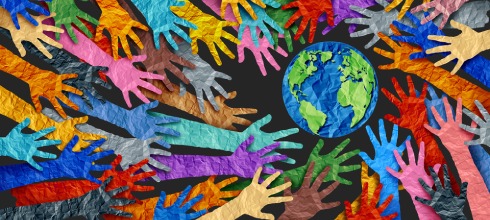Understanding the Essence of Culture for Human Expression and Identity

Introduction
Culture is an all-encompassing term that refers to the shared beliefs, values, customs, practices, and social behaviors of a group of people. It influences everything from our daily routines to how we perceive the world and interact with others. In this article, we will delve into the concept of culture, explore its role in shaping identities, and discuss how culture evolves over time.
What is Culture?
Culture encompasses the behaviors, norms, values, customs, language, art, music, and traditions that characterize a particular group or society. It is passed down from generation to generation and continuously evolves through interactions with other cultures, technological advancements, and societal changes.
The Role of Culture in Shaping Identity
Culture plays a critical role in shaping an individual’s identity. It provides a framework for understanding who we are, where we come from, and how we fit into the larger social fabric. Cultural practices, such as religion, language, and social norms, influence the way we think, act, and relate to others.
For example, an individual raised in a collectivist culture may prioritize family and community over personal desires, while someone from an individualist culture might value independence and personal achievement.
How Culture Evolves
Culture is not static. It evolves in response to changing conditions, such as technological advances, migration, and interactions between different cultures. For instance, globalization has led to the blending of various cultural elements, creating hybrid cultures that incorporate aspects from multiple traditions.
Social movements and political changes also shape cultural evolution. The civil rights movement, feminist movements, and LGBTQ+ rights advocacy have all contributed to cultural shifts toward inclusivity, equality, and social justice.
Cultural Expression: Art, Music, and Literature
One of the most powerful ways culture is expressed is through art, music, and literature. These forms of expression reflect the values, struggles, and aspirations of societies and individuals. From the Renaissance in Europe to the Harlem Renaissance in the United States, art has played a central role in defining and challenging cultural norms.
Music, too, is a universal form of cultural expression. Different genres, from jazz to hip-hop to traditional folk music, provide insight into the values and experiences of different cultures.
Globalization and Cultural Exchange
In today’s interconnected world, cultures are constantly interacting and influencing one another. Globalization has made it easier for people to share their cultural practices, food, fashion, and language across borders. While this can lead to greater understanding and collaboration, it can also result in cultural homogenization, where dominant cultures overshadow smaller, indigenous cultures.
Conclusion
Culture is the lifeblood of human society, shaping how we live, think, and connect with others. It provides a sense of belonging and identity, while also offering a platform for creativity and expression. As the world continues to change, culture will undoubtedly evolve, reflecting the ongoing journey of humanity. By understanding and appreciating the diverse cultures that exist, we can create a more inclusive and harmonious world.


